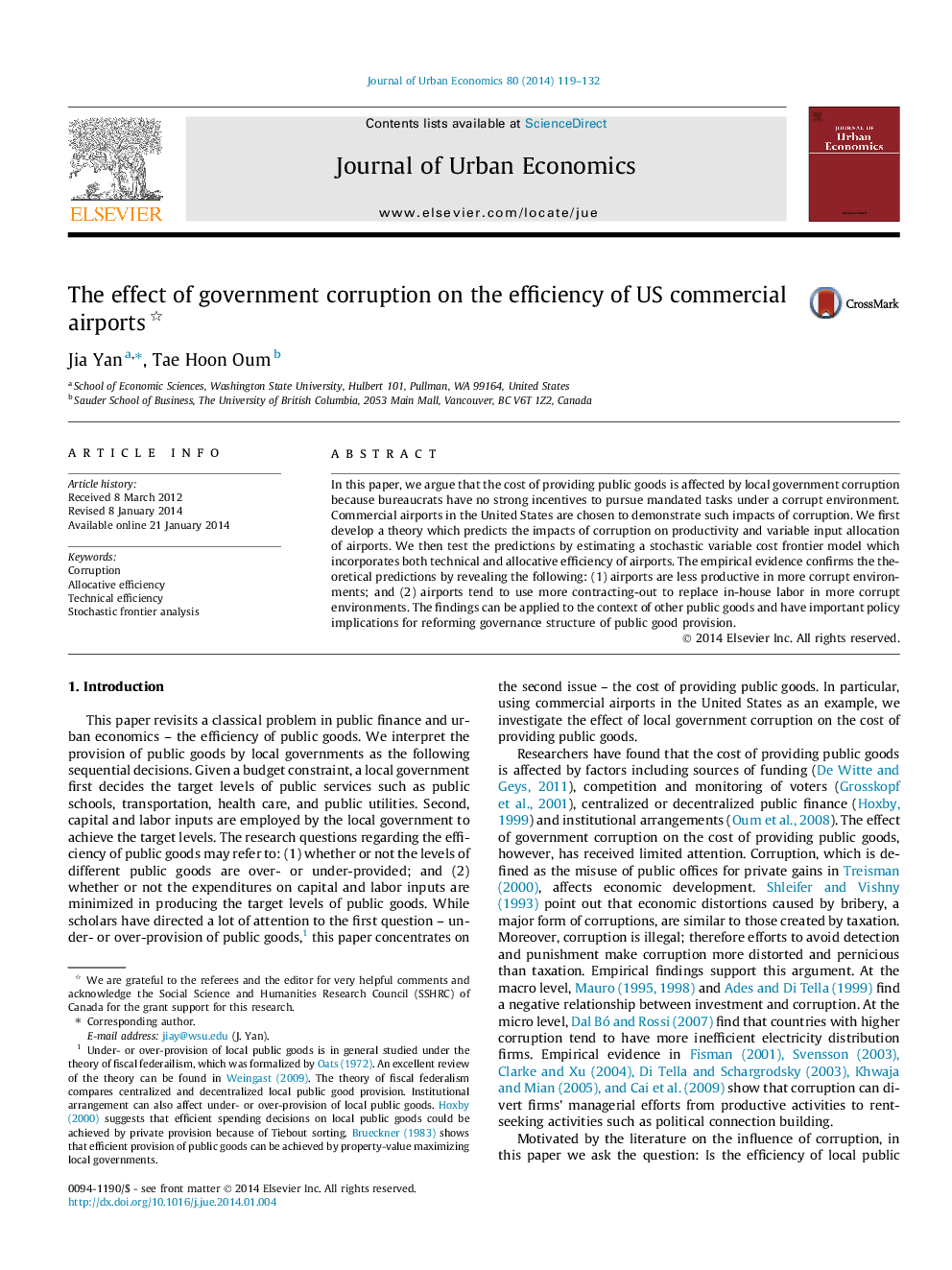| Article ID | Journal | Published Year | Pages | File Type |
|---|---|---|---|---|
| 970749 | Journal of Urban Economics | 2014 | 14 Pages |
In this paper, we argue that the cost of providing public goods is affected by local government corruption because bureaucrats have no strong incentives to pursue mandated tasks under a corrupt environment. Commercial airports in the United States are chosen to demonstrate such impacts of corruption. We first develop a theory which predicts the impacts of corruption on productivity and variable input allocation of airports. We then test the predictions by estimating a stochastic variable cost frontier model which incorporates both technical and allocative efficiency of airports. The empirical evidence confirms the theoretical predictions by revealing the following: (1) airports are less productive in more corrupt environments; and (2) airports tend to use more contracting-out to replace in-house labor in more corrupt environments. The findings can be applied to the context of other public goods and have important policy implications for reforming governance structure of public good provision.
